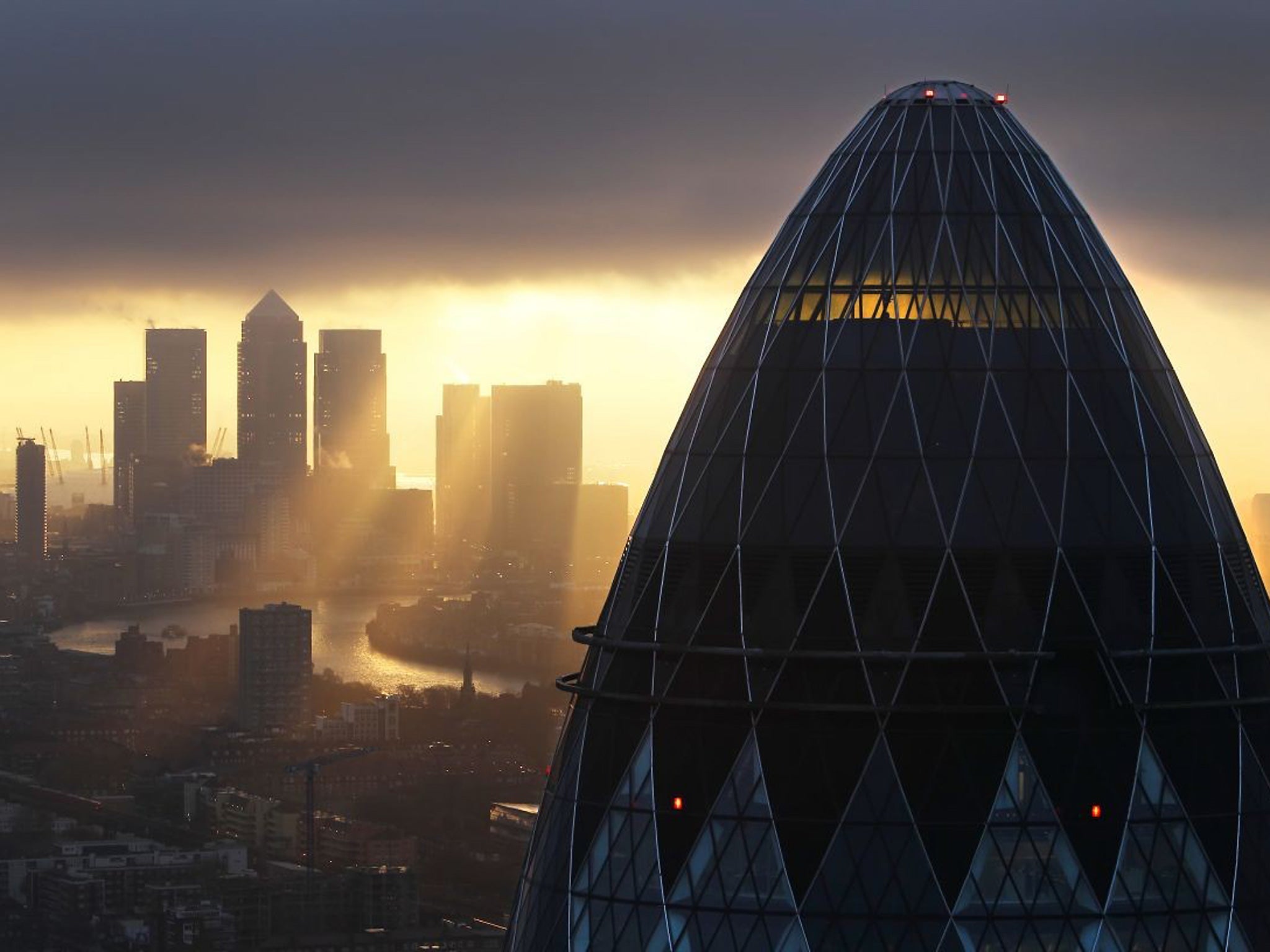Boost for George Osborne as economic growth upgrade points to recovery
...but at least there is some City news to brighten up your day

Hopes for Britain's flourishing recovery were boosted further after official figures revealed the economy grew by more than initially thought between April and June.
The Office for National Statistics (ONS) revised growth in the second quarter to 0.7 per cent, up from its initial estimate of 0.6 per cent expansion.
Rosier growth was seen across all sectors of the economy, with small upward revisions across manufacturing, construction and parts of services.
Second-quarter growth more than doubled from 0.3 per cent expansion in the first three months, raising hopes that the economy is now powering out of its five-year slump.
The Treasury said the upward revision confirmed the UK is "moving from rescue to recovery".
A spokeswoman said: "There is still a long way to go, but the economy is on the right track and the Government is committed to its economic plan that has already cut the deficit by a third and enabled the private sector to create over 1.3 million new jobs."
Output from the UK's building sites expanded by 1.4 per cent in the second quarter from an initial 0.9 per cent estimate as the housing market was ignited by state stimulus schemes, including Help to Buy and Funding for Lending.
There were also brighter signs from factories, which grew output by 0.7 per cent during the quarter, up from an initial 0.4 per cent estimate.
And output from distribution, hotels and catering firms, was revised up to 1.7 per cent from 1.5 per cent, while growth across business services and finance firms was also revised higher to 0.6 per cent from 0.5 per cent.
The overall services sector expanded by an unchanged 0.6 per cent, but output from the agriculture sector was revised up to 1.7 per cent from the 1.1 per cent first estimate.
Britain's shrinking net trade deficit, which dropped to £3.2 billion in the second quarter from a £4.3 billion deficit in the first quarter, also contributed to the increase in output as exports leapt to a record level.
James Knightley, economist at ING Bank, said the higher estimate of gross domestic product (GDP) will "boost optimism on the economy".
Markit chief economist Chris Williamson added it was a "very encouraging picture of a broad-based upturn across almost all sectors of the economy".
Pay and pension contributions increased by 2.4 per cent in the second quarter - the highest quarterly increase since late 2000 - with the pay spike boosted by unusually high bonus payments in April.
The ONS said spending across various parts of the economy contributed to growing output.
Spending by households increased 0.4 per cent in the quarter, raising hopes that higher consumer spending will drive the recovery.
It is now 1.6 per cent higher than a year earlier.
The ONS said overall economic output is now 3.2 per cent below its peak in the first quarter of 2008.
It dropped as low as 7.2 per cent below the peak in the second quarter of 2009.
The first estimate published in late July was based on 44 per cent of data, while today's estimate is based on 88 per cent of data.
Britain's growth prospects have been reinforced by its biggest trading partner, the eurozone, recently clawing its way out of recession with expansion of 0.3 per cent in the second quarter.
Economists said more bright signs on the home front, such as a CBI survey yesterday showing factory orders blossomed in August, will raise hopes that the UK can expand by same amount in the third quarter.
Vicky Redwood, chief UK economist at Capital Economics, said: "The recovery seems to be becoming more balanced, which is just as well, given that the consumer-driven growth seen previously was largely based on households running down their saving."
But accelerating growth will also give the Bank of England a headache with its bold new policy of tying interest rises to the unemployment rate.
The Bank has pledged not to raise rates from their record 0.5 per cent low until unemployment drops to 7 per cent from its current 7.8 per cent level - creating more than 750,000 jobs.
But the FTSE 100 Index has fallen, while the yield on government debt has risen, as markets speculate the rising growth will trigger a sooner-than-expected rate rise.
Mr Williamson said: "The Bank of England is facing a growing challenge of how to convince the markets and households that interest rates will not need to rise over the next three years.
"Given the strength of the GDP and survey data, and the fact that better growth now appears to be driving a strong upturn in the labour market, it's hard to see how an increasingly hawkish mood will not creep into the monetary policy meetings."
PA
Subscribe to Independent Premium to bookmark this article
Want to bookmark your favourite articles and stories to read or reference later? Start your Independent Premium subscription today.

Join our commenting forum
Join thought-provoking conversations, follow other Independent readers and see their replies